Life on the farm can be a great fit for some dog breeds. The farm offers an environment that can be filled with other animals, plenty of strenuous activity, and more time outdoors than in. There are many tried and true breeds that excel in the role of farm dog. Our list of the top seven best farm dogs highlights some popular breeds for homestead life.
Farm dogs often exhibit traits that are beneficial to life on the homestead. Vast energy reserves for long days in the field, keen senses to watch out for predators or other hazards, and a knack for following instructions are all highly desirable in a farm or ranch dog. We turned to 10 expert sources to help us learn about the seven best farms dogs that rule wide open spaces. Let us know your favorite breeds for country living in the comments below!
➡️ How Our “Best Of The Best” Lists Are Created
StudyFinds’ “Best of the Best” articles are put together with the idea of taking the work out of common consumer research. Ever find yourself searching for a product or service on Google and reading multiple reviews to find items listed across many of them? Our Best of the Best lists are created with that process in mind, with each item ranked by how frequently it appears on expert reviews or lists. With Best of the Best, you are getting consensus picks — making them truly the best of the best!
The List: Top 7 Best Farm Dogs Most Recommended By Experts
1. Australian Shepherd
The Australian Shepherd is cited by many of our sources as one of the most popular dog breeds on the farm. These dogs are well suited to long days filled with activity. Multiple sources point to the Australian Shepherd’s impressive working capabilities. AZ Animals says this breed is known for their intelligence, outgoing nature, and seemingly endless energy reserves, which stem from their strong European ancestry and further development in California.
Wag! also mentions their skills in tracking and hunting. They advise that due to their high energy levels, Australian Shepherds thrive in environments that allow for plenty of exercise, ideally in rural settings. Their strong work ethic necessitates providing them with an “occupation,” whether it be herding livestock or engaging in alternative activities to prevent them from redirecting their energy towards herding family members.
Hepper Blog says their striking appearance, characterized by the merle coat and fluffy fur, has also contributed to their surge in popularity as family companions. Therefore, Australian Shepherds are well-suited for individuals seeking a dog that can excel in both working and family settings.
2. Border Collie
Border Collies are well-documented for their intelligence and friendly demeanor. Border Collies have a talent for finding their place in the family pack. Imagine a dog so smart they practically read your mind when it comes to herding sheep (or maybe even your kids!). Wag! describes the Border Collie as a ball of energy with an innate understanding of the job they are given. They’re highly alert and require minimal instruction when it comes to managing a herd on a farm.
Thrifty Homesteader emphasizes their need for both mental and physical stimulation. Long walks, playtime, or even a “workday” spent engaging their minds are crucial for these brainy pups. Don’t be surprised if they pick up on tricks and commands faster than you can teach them – K9 of Mine highlights their exceptional intelligence, making them one of the smartest dog breeds around.
While Border Collies might have originated on farms, they can also thrive in active households. Their boundless energy, coupled with their eagerness to please and sharp intellect, makes them fantastic companions for those seeking a furry friend who’s always up for an adventure.
3. Australian Cattle Dog
Australian Cattle Dogs are another highly rated breed for the farm. They also often sport a distinct and beautiful spotted coat. Talk about a working-class pup! AZ Animals tells the story of the Australian Cattle Dog, also known as the Blue Heeler for its herding technique of nipping at livestock’s heels. Developed in the 19th century by crossing wild dingoes with drover dogs, this breed boasts impressive strength, seemingly endless energy, and a smooth, graceful gait.
The Spruce Pets assures pet owners that when it comes to herding over vast distances, there’s no match for the Australian Cattle Dog’s determination and resilience. Their name, “heelers,” comes from their herding style, and they are fiercely loyal companions known for their intelligence and eagerness to please.
Wag! succinctly summarizes their core purpose: herding. Bred for the task since the 1800s, these fearless and intelligent dogs excel at working livestock and guarding their territory. So, if you have cattle or a need for a top-notch herder, the Australian Cattle Dog might just be your “pawfect” match.
4. Anatolian Shepherd
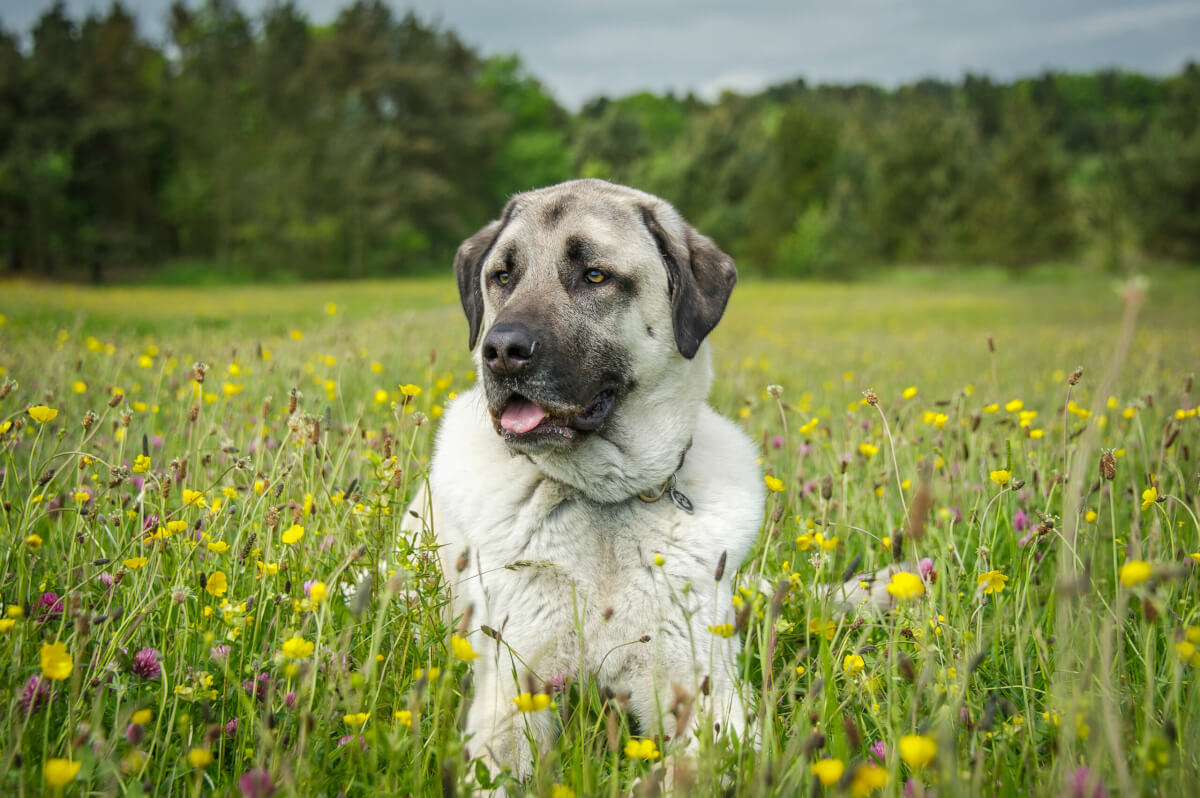
The Anatolian Shepherd is a big dog. They typically display a yellow or cream coat and dark facial markings. The breed might not be a familiar sight on American farms anymore, but Greenfield Puppies reminds us of their impressive history. As one of the oldest herding breeds, their lineage stretches back centuries. This long tradition of protecting sheep shines through in their exceptional herding and guarding abilities.
Hailing from Turkey, the Anatolian Shepherd was bred to withstand harsh conditions, resulting in powerful and robust dogs. Their large size allows them to handle even the biggest livestock, and their natural instincts make them exceptional guardians (The Spruce Pets).
AZ Animals throws a bit of a curveball, clarifying that despite the name, Anatolian Shepherds aren’t actually herders. They excel in a different role – that of a livestock guardian. Their independent nature, territorial instinct, and strong protective streak lead them to take charge, often perching on high points to keep a watchful eye over the entire flock.
5. Airedale Terrier
Airedale Terriers often perform well at championship dog shows. They also make for strong and able-bodied farm hands. Imagine a dog with the heart of a terrier and the size of a… well, a much bigger terrier! Highland Canine explains that Airedales are a product of various breeds, including the Otterhound and some now-extinct fellows. Earning the nickname “King of Terriers” due to their impressive stature, these pups combine their strength and stamina to excel in farm work.
Hepper Blog loves their larger-than-life personalities. They acknowledge the fun and tenacious nature of Airedales, but also emphasize their eagerness to please. This combination makes them ideal farm companions. While natural-born ratters, Airedales are versatile enough to tackle herding duties and even act as farm protectors thanks to their booming barks.
Bred as all-around farm dogs, Airedales possess the classic terrier prey drive, making them exceptional vermin hunters. However, their loyalty extends beyond just pest control. With proper training, Airedales can be trained to assist with livestock management. So, if you’re looking for a lively, hardworking companion for your farm, the Airedale Terrier might just be the “big dog” in a terrier’s body you’ve been searching for (The Spruce Pets).
6. Pembroke Welsh Corgi
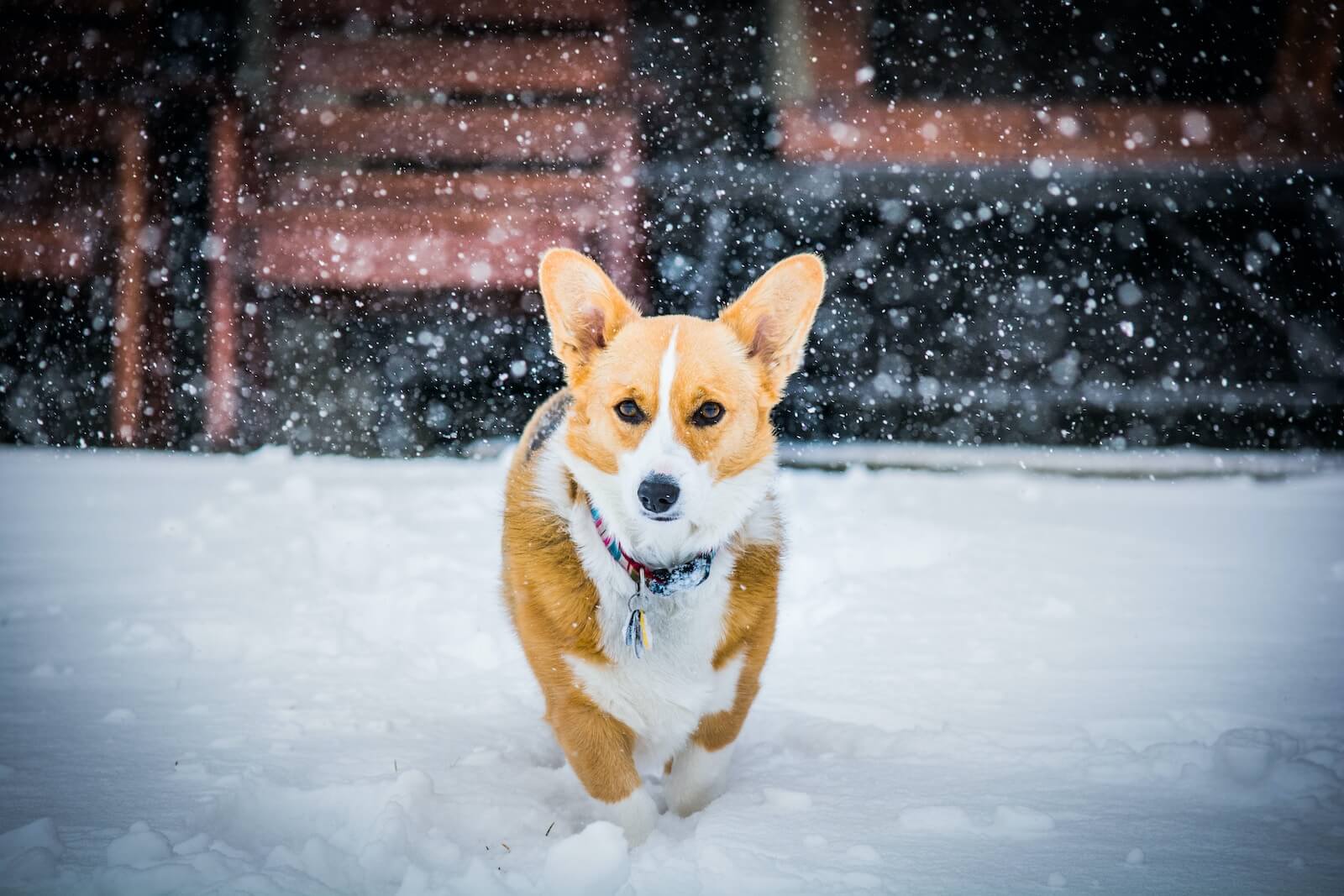
The corgi is often thought of as a chubby low-rider. While this can be true for some corgis, others are ready to work it hard on the farm from sunrise to sunset. Don’t let their short legs fool you – the Pembroke Welsh Corgi is a pint-sized powerhouse! Vet Street sheds light on their personality, describing them as independent thinkers with a strong will. Despite their independent streak, they’re also known for being affectionate and eager to learn. Surprisingly, these little bundles of fur have a rich history as capable herders of cattle and sheep, proving their versatility as farm helpers.
AZ Animals dives into their origins, tracing them back to the county of Pembrokeshire in Wales. Corgis inherit a unique dwarfism trait, resulting in their signature low-to-the-ground build and short legs. But don’t underestimate their size! These pups are surprisingly strong and athletic, utilizing their agility and nipping technique to effectively herd livestock. Their fearlessness and vigilance also make them natural guardians, keeping a watchful eye over their domain.
While acknowledging their intelligence, hardworking nature, and affection, The Spruce Pets also notes the importance of proper exercise and socialization. Corgis might not possess the intense energy levels of some other herding breeds, making them suitable family companions. However, their tendency to bark and occasional nipping behavior require consistent training and management.
7. German Shepherd
The German Shepherd or the Alsatian Dog is the canine standard bearer for hard work. They are highly intelligent and amenable to training, making them an excellent choice for the farm. Don’t be fooled by the “Shepherd” in their name – German Shepherds are multi-talented farm companions, according to Highland Canine. Originally bred for herding sheep, these intelligent dogs also possess a strong protective instinct. This makes them invaluable assets when it comes to deterring threats to livestock or property.
Top Dog Tips echoes this sentiment, calling the German Shepherd the “classic working dog.” They excel at any task they set their minds to, from herding to acting as vigilant protectors. Their loyalty extends to all members of the “farm crew,” with a natural aloofness towards strangers further bolstering their guarding capabilities. Top Dog Tips even goes as far as saying that if you can only choose one dog for your farm, a German Shepherd would be an excellent choice.
While widely recognized for their exceptional guarding abilities, Hepper Blog says many might be surprised to learn that German Shepherds were originally herding dogs tasked with protecting flocks. This dual purpose – herding and guarding – makes them a formidable addition to any farm, ensuring the safety and well-being of both livestock and property. So, if you’re looking for a loyal companion who can handle both herding duties and guard duty, a German Shepherd could be the perfect fit for your farm.
You might also be interested in:
Sources:
- HK9
- Top Dog Tips
- Hepper Blog
- Wag!
- Thrifty Homesteader
- K9 of Mine
- Greenfield Puppies
- The Spruce Pets
- AZ Animals
- Vet Street
Note: This article was not paid for nor sponsored. StudyFinds is not connected to nor partnered with any of the brands mentioned and receives no compensation for its recommendations. This article may contain affiliate links in which we receive a commission if you make a purchase.
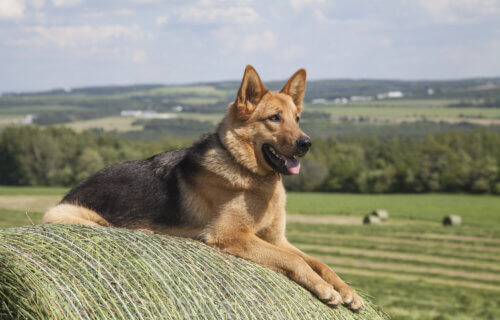
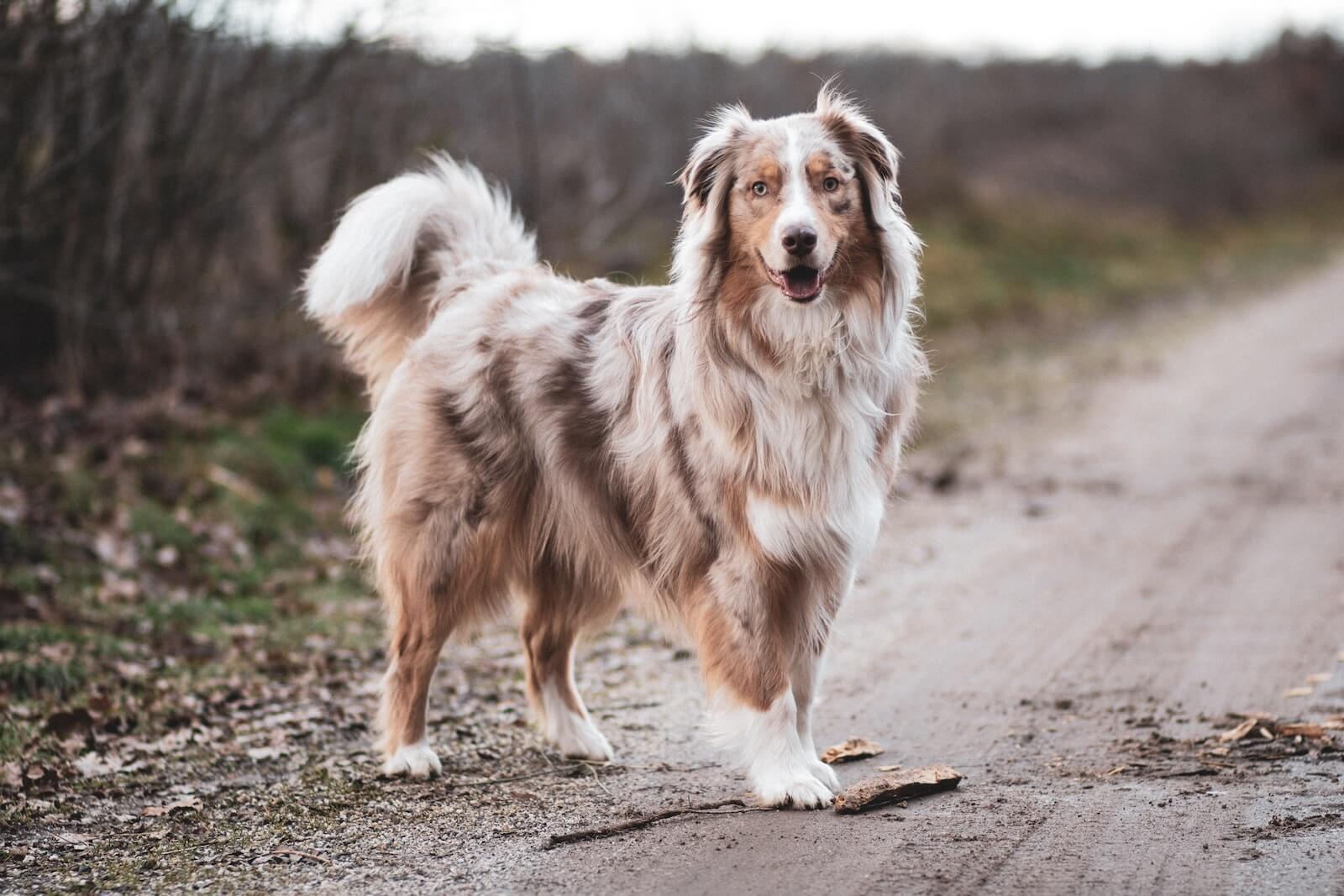
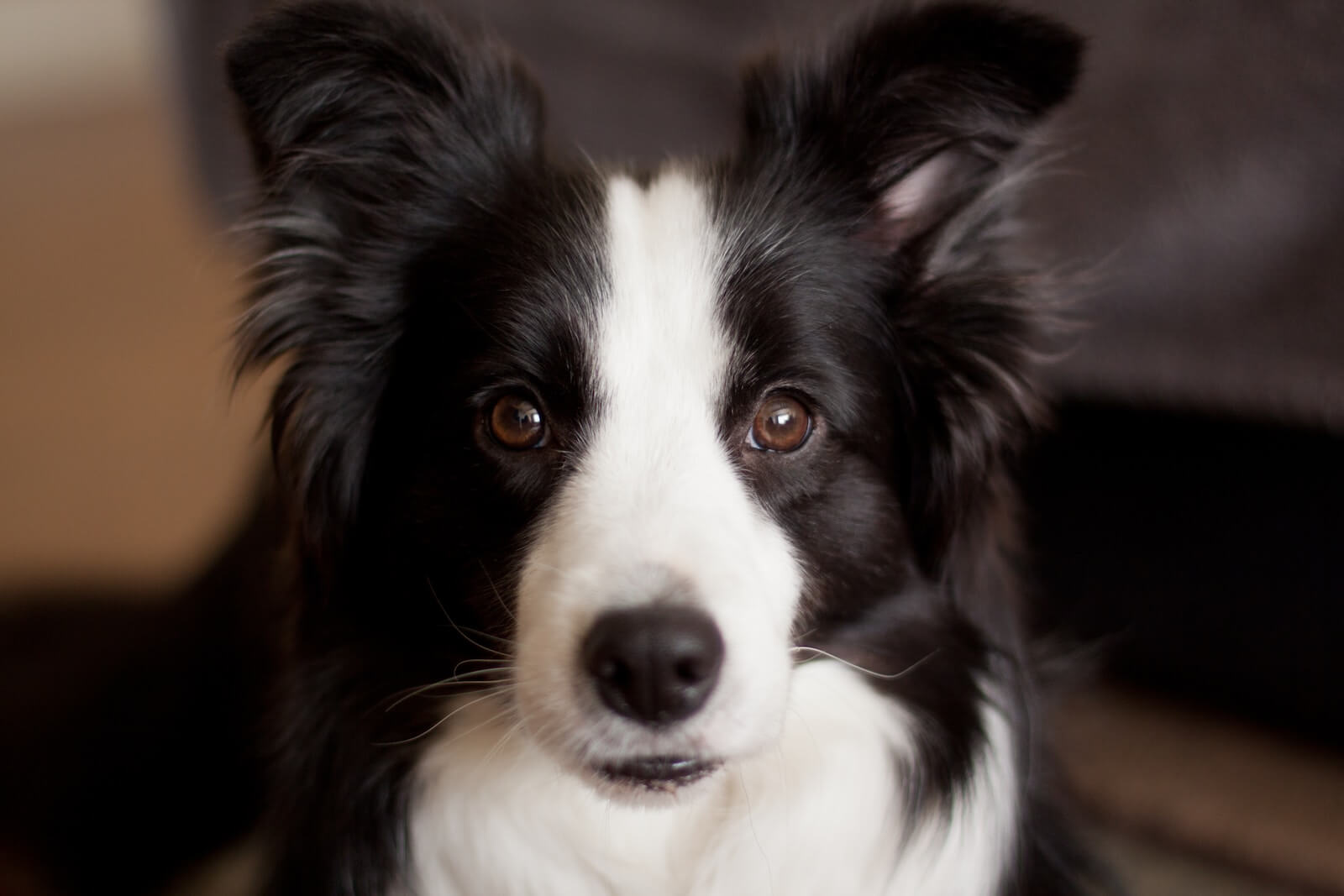
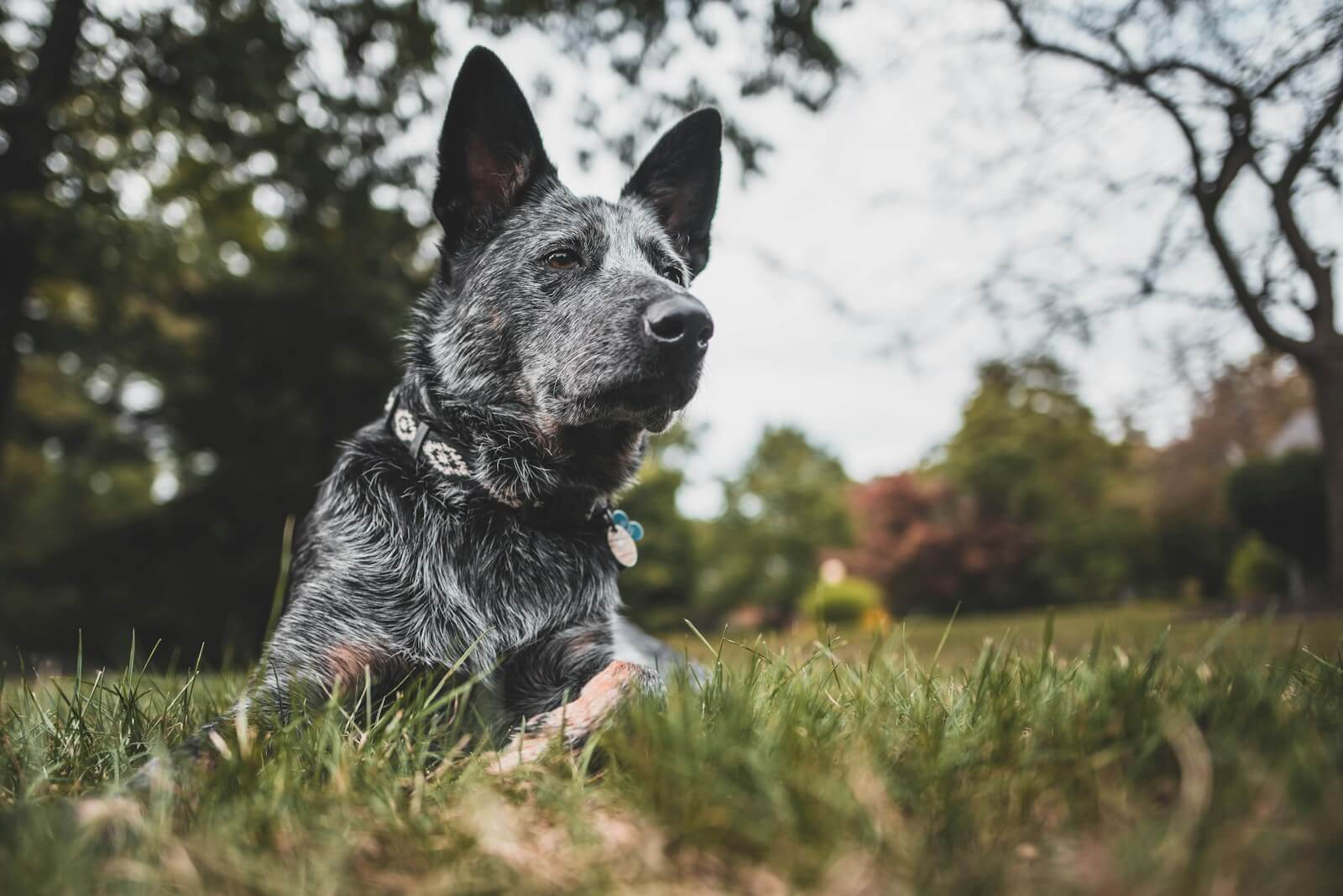
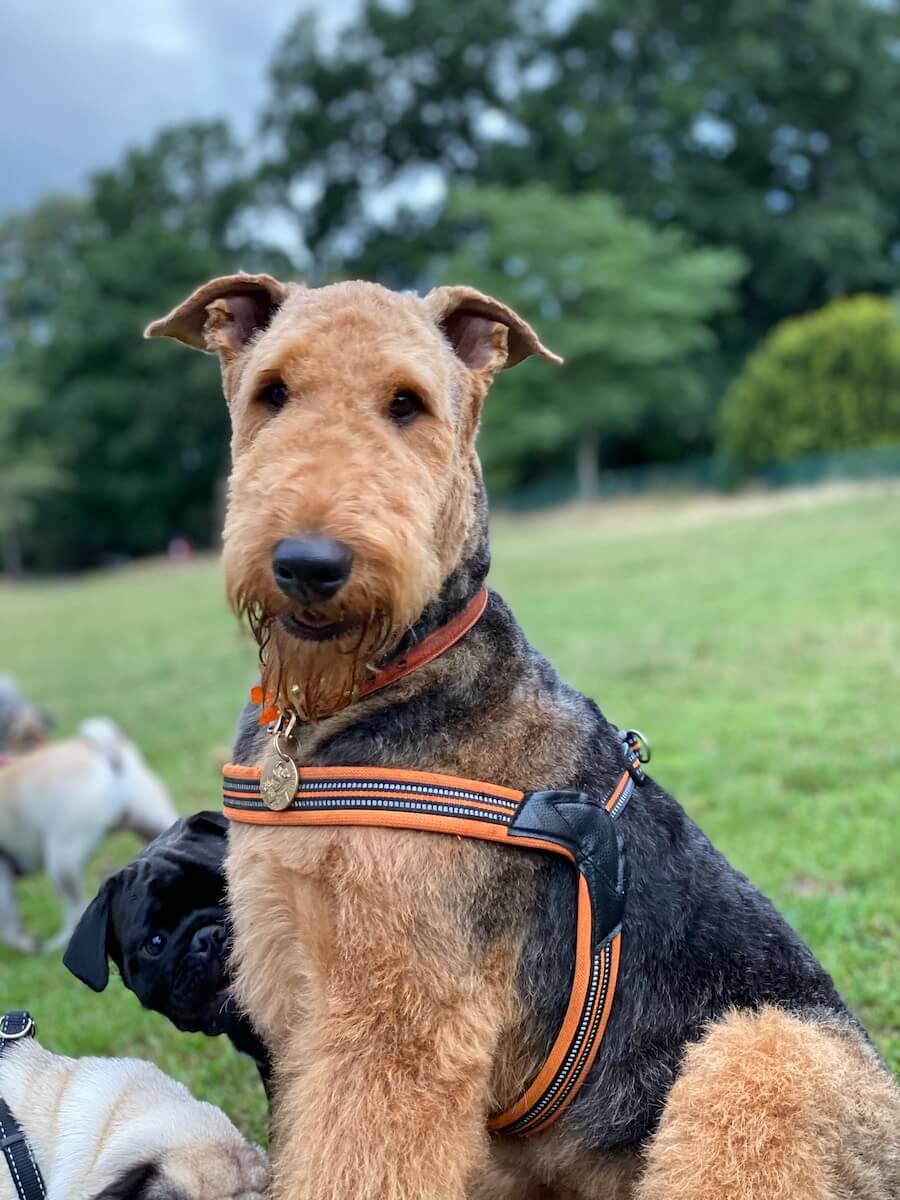
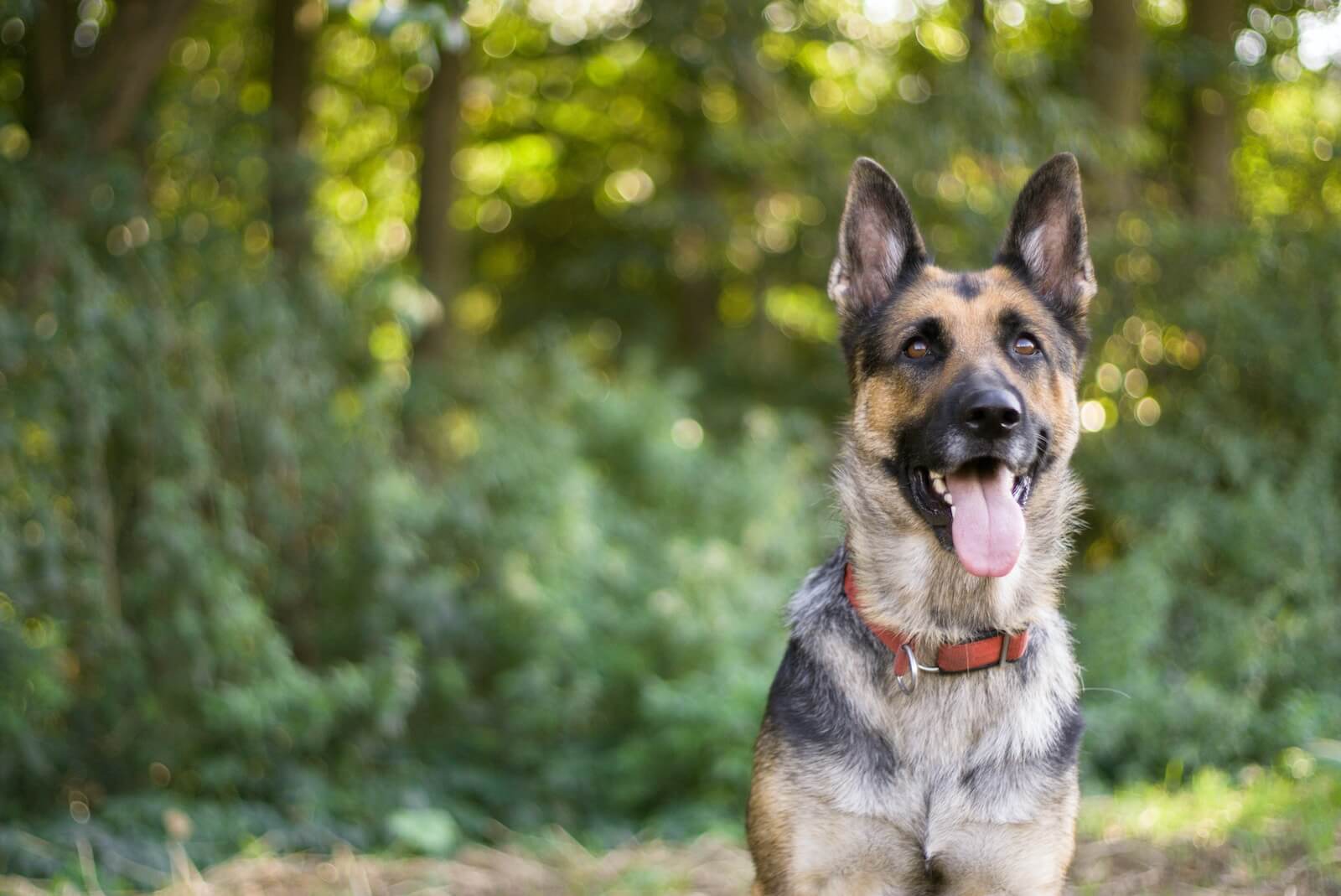
You should at least have a photo of a Leonberger not a mix. That dog is not a purebred. 🙄🤦♀️🤬
Did you look at the English Shepherd or Old Time Scotch Collie? The Scotch Collie is also known as a Farm Collie.
What experiences I have had with Blue Healers have not been positive. Very temperamental and will bite easily. Just ask delivery people!
Have been bitten myself on my own property by two separate dogs.
Very destructive! Have had dogs all my life all kinds. Raised on a farm.
Always leaving out Rough Collies on these lists. Our collie disappeared for a day or two. We we concerned, but then Dad got the idea that maybe she had stayed at the back of the farm to guard the tractor left there. When he checked? Sure enough, our Lassie was there. Never understate the value and companionship these loyal farm dogs ALWAYS freely provide. BEST!